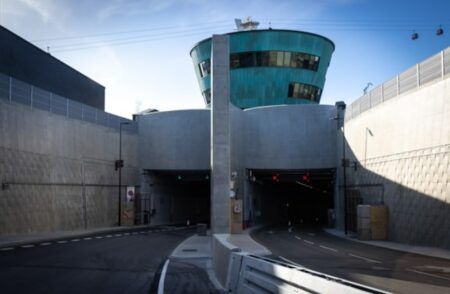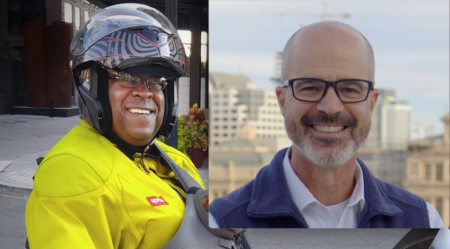Highways England (HE) has been trialing a new first-of-its-kind type of resurfacing machine on a scheme in West Yorkshire that could considerably reduce the duration of future roadworks on the country’s motorway network.
A unique 12.5ft (3.8m) wide drum fitted to a Wirtgen W 250i planer enables the machine to remove around 600 metric tons of asphalt per hour, the equivalent of 30 truckloads, which means the road is ready to be resurfaced much earlier than when using the standard method, creating a longer working window. The unique machine has the capability of planing one full-lane width up to 12.5ft (3.8m) wide in a single pass, unlike the standard method of doing multiple passes, which has added safety benefits for staff, as 50% of the reversing is eliminated. The planer, along with the Volvo 8820 paver, have been used to resurface 33 lane miles of the M62 between Rothwell and Normanton (junctions 30-31), the biggest Yorkshire resurfacing scheme over the past financial year.
The extra-wide paver can lay two full-width lanes of road surfacing at a time, eliminating one of the joints between the lanes, which is often where potholes can develop. This ensures the road surface is more robust to the cold winter climate, particularly the type of conditions experienced over the last winter period. Overall, the M62 scheme involved replacing 3.8 miles (6.2km) of steel central reservation barrier with concrete, along with 24 new lighting columns, 24.2 miles (38.9km) of new road markings, and 2.3 miles (3.7km) of renewed and improved drainage systems. Due to the speed of completion of the project, HE has plans to use the larger planer and paver in the future on its motorway network.
“We know that drivers care about the quality of road surface. We are always keen to trial new innovative technology and ways of working, particularly where it can help improve productivity, enable roadworks to be completed quicker, and minimize the disruption for drivers,” explained HE’s project manager, Andy Barlow.
“Utilizing Tarmac’s wide paving machine on the M62 scheme was the ideal opportunity. This machine not only has the benefit of being capable of laying up to 1,500 metric tons of surfacing material in a single shift, around 15,625m2 of surface, but is also able to resurface two full lanes in one go. This eliminates the joint between the running lanes, which would be present if we had done the more traditional method of resurfacing a single lane. As these areas are often the locations where problems with the carriageway surface occurs, this method should hopefully increase the life of the surface.”
Linda Carr, senior project manager for contractor A-one+, said, “We are always looking at ways we can increase productivity to achieve our efficiency targets, and the success of this whole scheme was through real partnership working, from end to end with Highways England and our supply chain, specifically Tarmac and NRP for traffic management and planning, and CR Civils for drainage and civils. Using these two new pieces of equipment we were able to reduce the amount of closures, which benefitted customers and local communities. We were also able to incorporate additional works into the scheme, averting future closures.”




